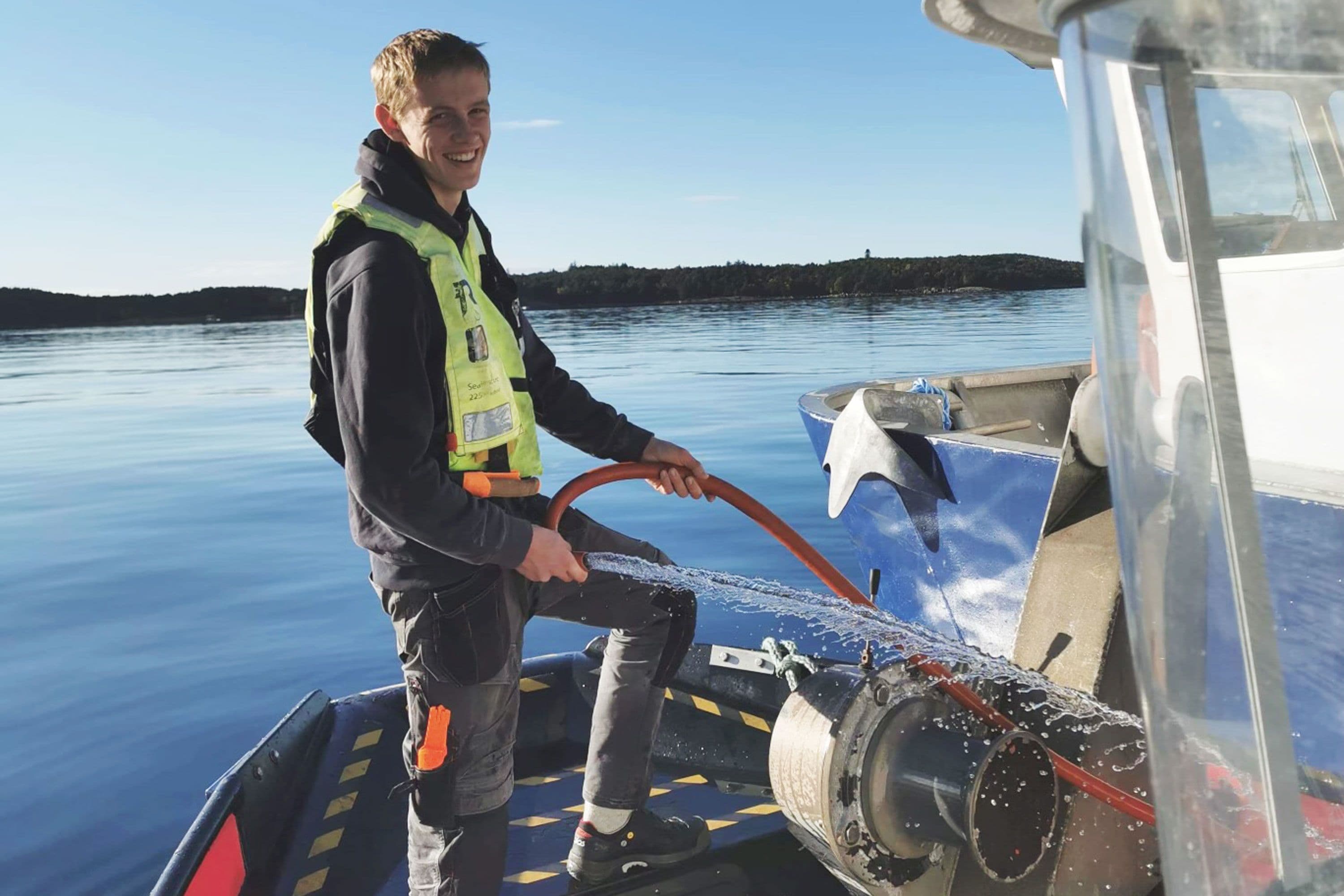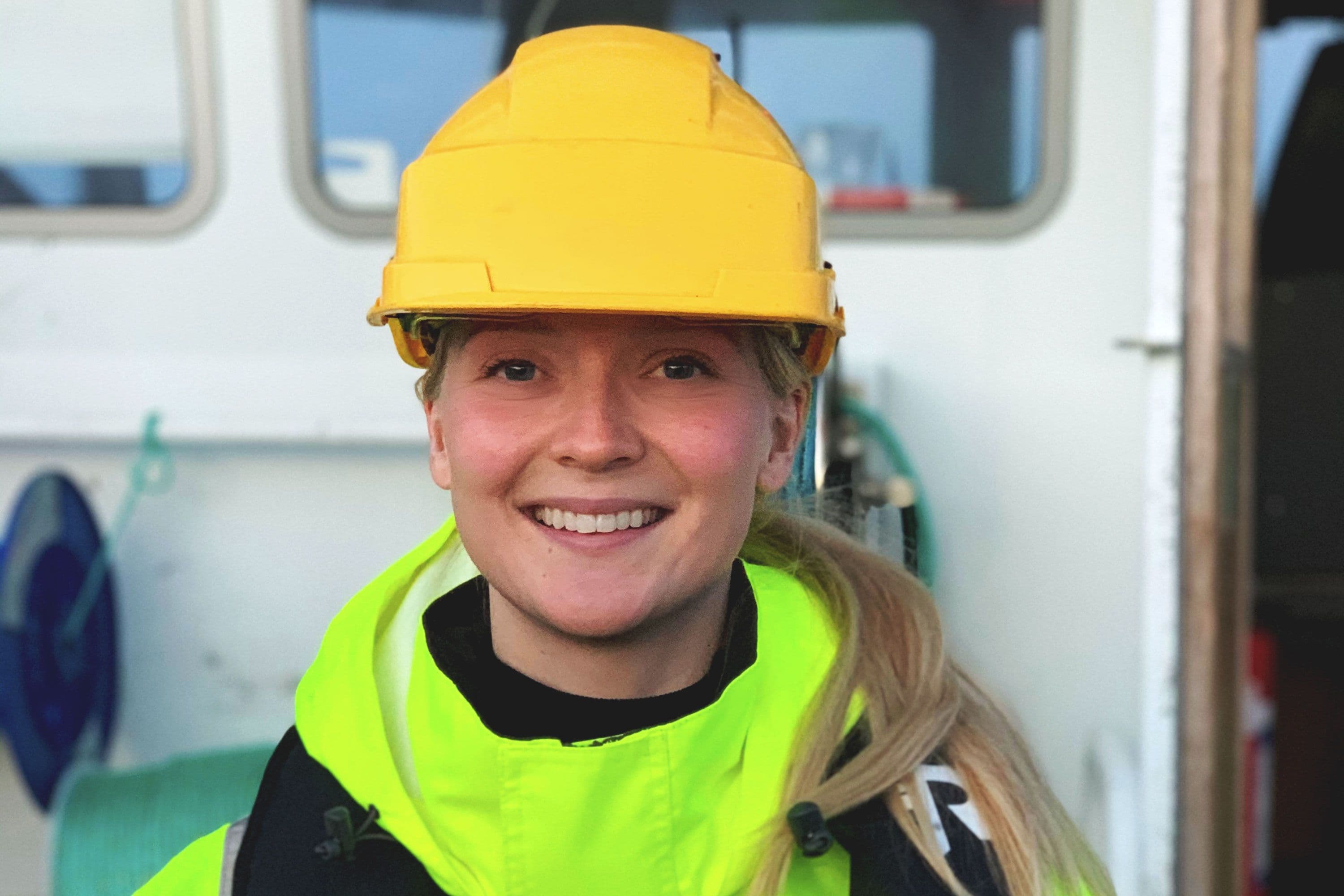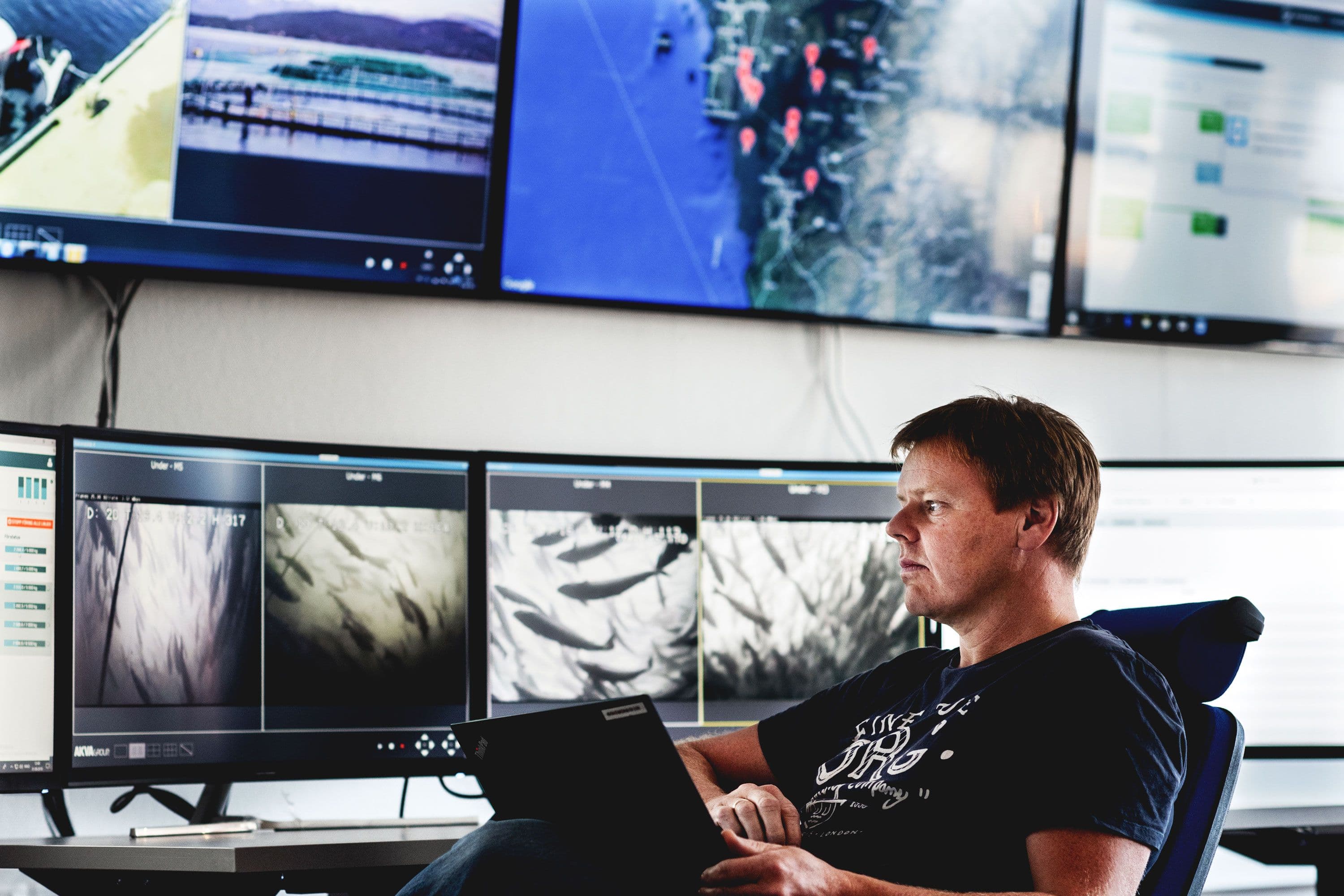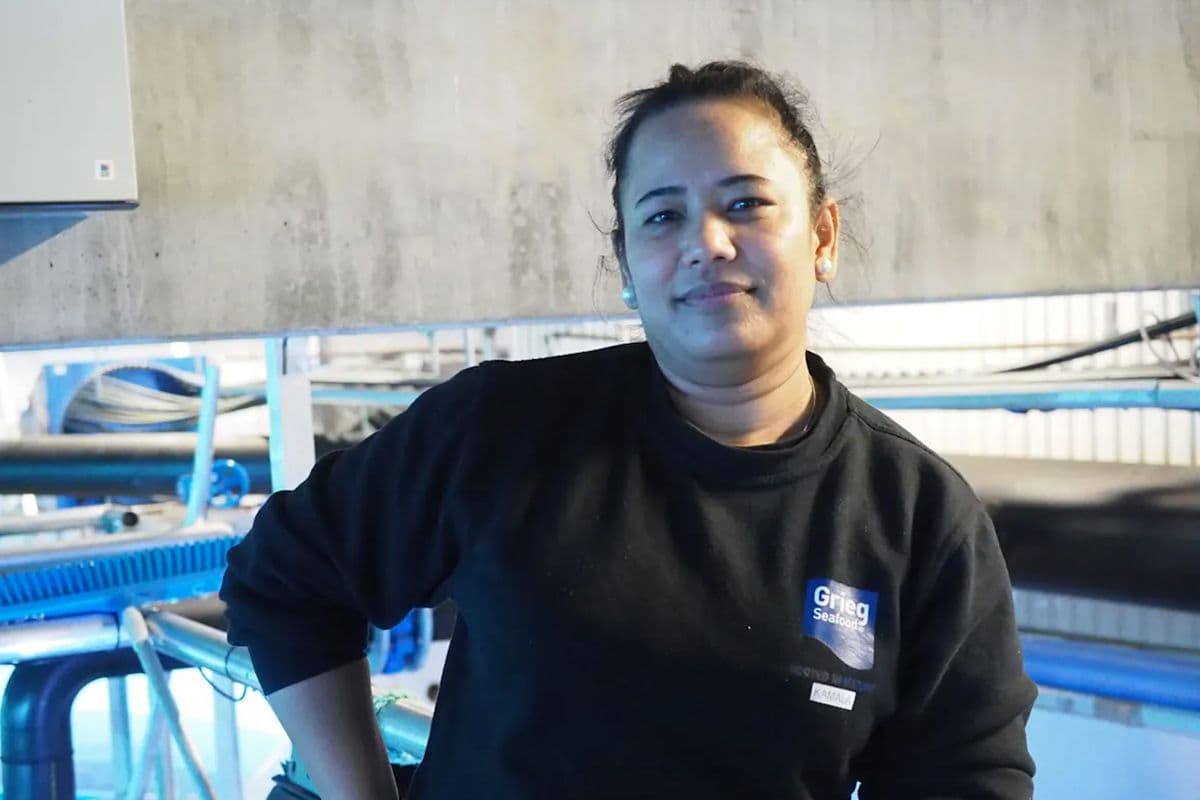
“Today, the weather is pretty grey. But the fish need us every day regardless of the weather conditions, so we check the fish, the nets and the moorings,” Kristian explains.
“The best days are probably those with good weather and flat sea, because it is incredibly beautiful out here,” he adds.
Breakfast and planning
It has only been a few hours since Kristian and his colleagues arrived at the farm after a 15 minute boat trip from Stavanger to Teistholmen. The day starts with a joint breakfast where they also review the operational status.
“The breakfast gathering is not only important to plan the day. It is also important for the working environment and the unity we feel when we work so closely in a job with high responsibilities.”
We work with living animals. Fish welfare and animal health take precedence all the way.
Hungry for responsibility
Kristian is a second-year apprentice at Teistholmen farm. They are two apprentices, two farmers and an operations manager on duty together.
Growing up in a municipality with with both agriculture and aquaculture has definitely influenced Kristian’s choice of education and profession. He has always loved boating and the sea. From his home, he can see several salmon farms, sparking curiosity and a desire to study aquaculture.
“It was a good choice, because this is an exciting job. Here you get to do many work tasks. If you want responsibility, you get it.”
And responsibility challenges and stimulates Kristian. He is ready and hungry for more and bigger tasks. The 19-year-old has one short-term and one long-term goal:
“First I will get the certificate of apprenticeship done, and in time I want to try larger assignments,” he says.
The fish comes first
He feels that it is a great responsibility to ensure that 700,000 salmon have a good life.
“There are so many fish that it is difficult to imagine all of them. But we work with living animals, and fish welfare and animal health take precedence all the way. If the fish is not well, the end result will be bad for all parties.”
Aquaculture for the rest of his life
The working days for the apprentices are diverse as they learn all the different work tasks that take place on a farm. The feeding systems and technical installations must be maintained and operated, the fish must be cared for and the equipment inspected, and not least there is a set of procedures, routines and documentation of work tasks that must be completed.
“We also have wrasse and lump suckers in the pens, who require their own feed and our attention as well. The days are eventful and varied, and at times physically demanding,” says Kristian Spissøy Kloster.
“I will work in the aquaculture industry for the rest of my life. That is my plan, according to the experiences I have so far.”


